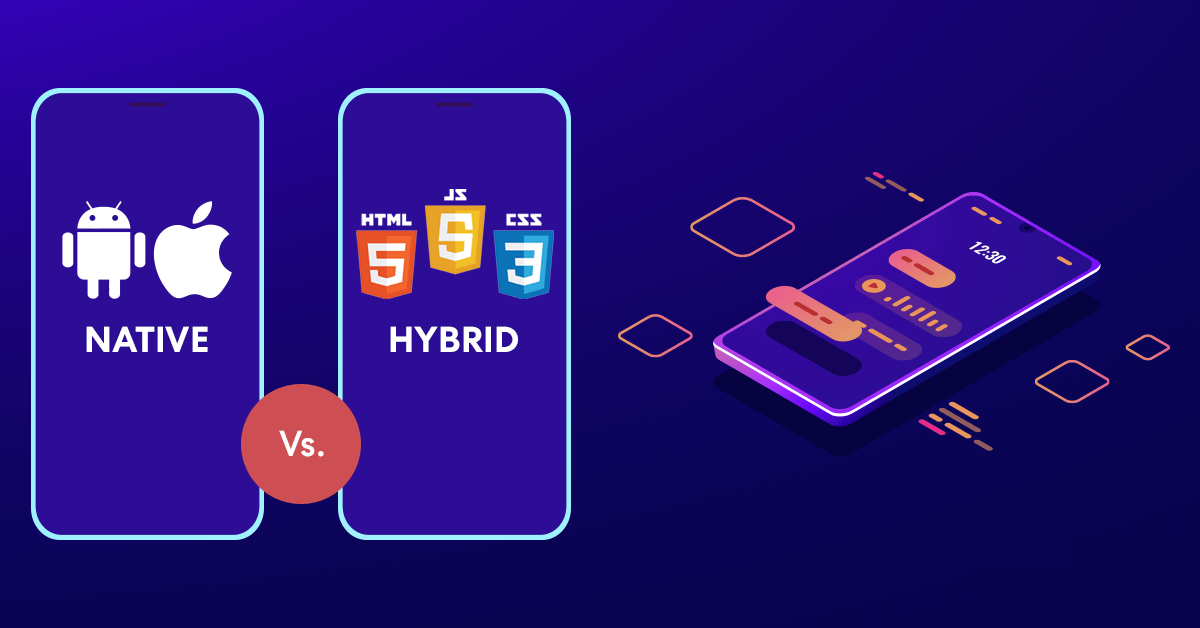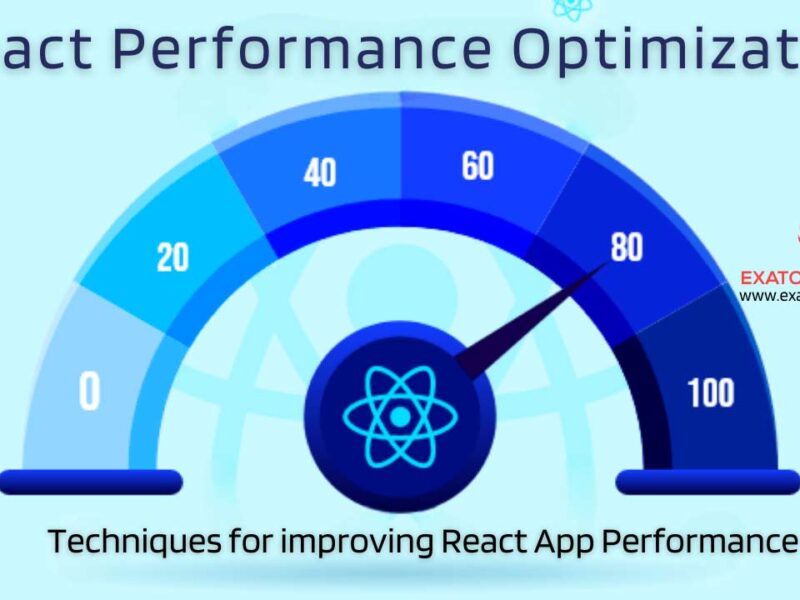When you are developing an app, you may have to choose between hybrid or native app development technology. These two terms can be quite confusing for someone new to the world of mobile app development. In this blog post, we explore what hybrid and native app development technology mean and which one is better for your project. Keep reading to find out more! We live in a digital age. More people than ever before own smartphones, tablet devices, or some other kind of mobile device that they use to access the Internet and apps. Each day there are more opportunities to become an app developer; indeed, this is one of the most rapidly expanding job fields right now. Whether you’re just dipping your toes into the world of app creation or you’re a seasoned coder looking to branch out into something new, it helps to know your options before diving in headfirst.
What Is Hybrid App Development?
Hybrid app development is the process of creating apps that are not purely native or web applications, but a combination of both technologies. Hybrid apps contain native UI components, but they also use a web view to run the code in a hybrid app. Native apps are fully developed in the platform or programming languages of the mobile operating system, such as Android or iOS. Hybrid apps are built using web technology that allows the app to work cross-platform, no matter what device you’re using. This is the reason why hybrid apps are also called “cross-platform” apps. A hybrid app is essentially a website wrapped in a mobile app container. Hybrid apps are written using web technologies, such as JavaScript or HTML, and run in a native wrapper, such as Apache Cordova or Ionic, that gives the app a native look and feel.
What Is Native App Development?
Native app development refers to the process of creating apps from scratch that are written specifically for a single platform such as iOS or Android.
Native apps are written in the programming language specific to the OS, such as Swift for iOS development or Java for Android development.
Mobile Native apps have each platform’s look and feel, and usually have better performance than a hybrid app because they are not running in a web view. A native app written for iOS will run only on iOS, and a native app written for Android will run only on Android. You cannot share code between the two unless you use some really advanced techniques. For example, you can share JSON files to store data or other assets. That’s not really practical though, so most developers use different languages to create apps.
How Are Hybrid Apps Built?
With hybrid app development, you build a single app that can be run on multiple platforms. This means that the app is built with a cross-platform language such as JavaScript or TypeScript and then is wrapped with a native container. The native container gives the app the look and feel of a native app, which means it will look and feel like an app built for a specific OS.
Pros of Hybrid App Development
Cross-platform: Hybrid apps can be used on multiple platforms. Hence, there is no need to create an app for each OS; a single app can be used on every OS.
Code Sharing: Hybrid apps are built with web code, so it’s easy to share the code between platforms. Design: It’s easier to design a hybrid app since it runs in a web view, so you can use many tools like Photoshop to design the app. –
Easy Deployment: Hybrid apps are easy to deploy as they are hosted in the cloud, unlike native apps, which need to be installed on a user’s device.
Cost-Effective: Hybrid app development is less expensive compared to native app development.
Ease of Learning: Since hybrid app development uses web technologies, it’s easy to learn.
Engagement: Hybrid apps engage users better since they are wrapped in native containers.
Cons of Hybrid App Development
Limited Functionality:
Hybrid apps are not as powerful as native apps. They can’t use device-specific features and they have a bit of a reputation for being unstable.
Reduced Security:
Hybrid apps are more prone to attacks as they are running inside a web view.
Performance:
Although hybrid apps are built with web technologies, they don’t perform as well as native apps. The user experience may be less than ideal.
Design Limitations:
It’s easier to design a hybrid app since it’s running in a web view, but designers often run into limitations when trying to mimic a native app’s UI.
No Device-Specific Functionality:
The app can only do what the web technologies allow, which may not be what you need.
Pros of Native App Development
Full Functionality: Native apps are powerful and can make use of device-specific features.
Performance: Native apps perform better than hybrid apps.
Security: Native apps are more secure as they don’t run in a web view.
Design: It’s easy to design a native app since it can be designed for a specific OS.
Easy Deployment: Unlike hybrid apps, native apps can be installed on devices.
Cons of Native App Development
Cost: Native app development is more expensive than hybrid app development.
Code Sharing: Code cannot be shared between different OSs, so two apps must be created, one for each OS.
Ease of Learning: Native app development is harder since it requires knowledge of specific programming languages.
Engagement: Native apps engage users better since they are running in a UI specific to the OS.
Which Should You Pick?
Hybrid apps can be a good choice if you’re not sure if your app will be successful. They are much easier to build and less risky since you’re not investing in them as much as you would for a native app. They also have an advantage when it comes to marketing since you can say that your app works on multiple platforms. On the other hand, native apps are more powerful and allow you to make your app stand out. They offer a better user experience because they are built to work specifically for a given OS. If you already have an idea of which OS you’d like to target, then native app development is the way to go. If you aren’t sure which OS to target yet, you may want to go down the hybrid app route. In any case, it’s important to keep in mind that both types of apps have their advantages and limitations. Depending on your specific needs, you can choose the right type of app.



